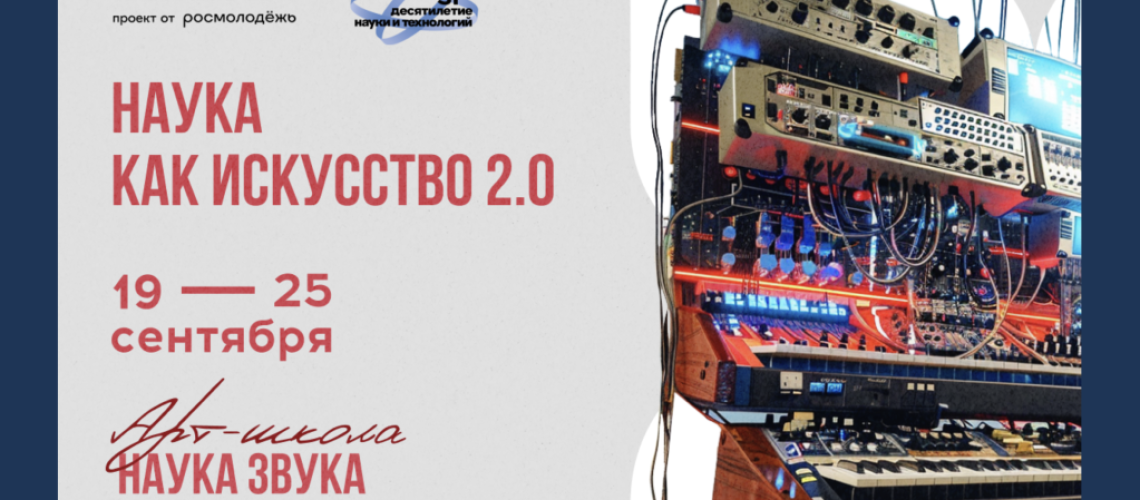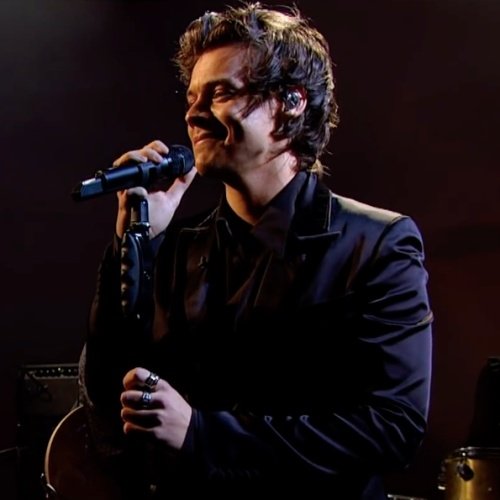The founder of SOMA Laboratory announced he would participate in an event in occupied Crimea in September at a venue backed by the Russian government. That revelation has produced an outcry from Ukrainian musicians and cultural workers – starting with a former Mariupol resident.
And an outcry is what’s deserved. This is deeply disappointing – to me, on a personal level, on behalf of countless friends and people I care about. And it feels deeply unnecessary. Vlad Kreimer is routinely featured internationally. Choosing to participate in Crimea means actively participating in the occupation of Ukraine. In this case, given this particular venue and its backers, the event is directly connected to the Russian federal government. But we should back up for more context.
Founder Vlad Kreimer was born in Donestk, which was still in the Ukrainian SSR at the time. SOMA, too, began in Donestk, though when I first met Kreimer in Moscow, he and the company were based there. SOMA now operates through two entities: the “SOMA European division,” represented by SOUND MACHINES Sp. z o.o., in Warsaw, and the SOMA Laboratory in Moscow.
SOMA operates as an international company – there’s now a US “division” in addition to the EU one. Of course, international customers buy from the Polish EU division, not from Russia. However, much of the design, code, production, and marketing continue to operate from Moscow. Effectively and legally, the heart of SOMA is a Russian company, and that company remains directly involved in all of the products. As if to underline the point, SOMA has even made Moscow a focal point for some of its marketing, including filming a promo video with partygoers at Powerhouse Moscow.
Typically, people raising concerns about Russian interests amid the full-scale invasion of Ukraine have to answer charges of Russophobia. But even since 2022, it’s been easy to find SOMA Laboratory equipment in the musical arsenals of many Ukrainian artists. SOMA products have been a staple of even the very proudly Ukrainian scene around Berlin. (I haven’t done a scientific study here, but I would describe the number of Ukrainian musician friends with SOMA gear to be roughly “most of them.”)
The revelation this week is that Vlad Kreimer announced his participation in an event in occupied Crimea, internationally recognized as Ukraine, at the Tavrida Arts Park on the outskirts of Sudak on the Black Sea. Responding to CDM, SOMA Laboratory Europe shares this statement:
Yes, Vlad is going to make a workshop on the Tavrida Art and Science program. It is his personal activity.
Vlad makes lectures, masterclasses, and workshops for supporting the creative community around the globe in different countries.
The festival as all events that Vlad attended before is non-political and intended for civilian people.
Particularly, this workshop is going to be dedicated to DIY music gear. He was invited by the organisers and decided to take part in the festival.
The announcement was screen captured before Vlad deleted it (including identifying him as the SOMA founder, even if this is a “personal” activity):

The event and its lineup are visible on Tavrida’s site. Former Playtronica co-founder Viktor Glazunov is also participating. (Playtronica itself has relocated to Berlin, and the team has publicly expressed its opposition to the war.)
The event’s sponsors are also listed, including multiple projects directly associated with the Russian federal government or otherwise affiliated; sponsors include the Ministry of Education and Science of Russia and the Science.rf project, the MIR MIO industry group, the “Coordinating Council for Youth Affairs” in Science and Education, which is attached to the Russian President’s office, and the Mendeleev project, which describes itself (in Russian) as an “all-Russian” science event. (Of all of those, definitely look up Rosmolodezh for a start.) Note that even the description of Russian identity here is itself political, given the presence not just of the Ukrainians in Crimea but the long-standing repression of the Crimean Tatar indigenous people.
Ukrainians (and some Russians) I spoke with off the record disagree strongly with the assessment that this is a “non-political” move. Modular artist Alex Kuvallini, creator of frūstrātiō “the avant-garde electronic music label from the incinerated Mariupol and now reborn from the ashes in Berlin,” was the person to sound the alarm publicly.
In a statement on his Instagram account, Kuvallini writes:
Dear synths lovers and nerds,
The founder of ©somasynths, Vlad Kreimer, will participate in an event organized by the Russian government in occupied Crimea. He is desperately deleting these mentions, but please know that the money you spend on their devices now supports such kind activities.
I personally knew him and once, at Superbooth, had a talk about how much I love his devices and shared a story about the gear I lost in Mariupol after the occupation. His response left me with odd feelings (even knowing that he is born in Donetsk, Ukraine), and now I clearly understand why they are still operating a business in Russia.
So, I will avoid any SOMA products as they support actions against Ukrainian independence and still pay taxes in the country that continues this genocide.
(Kuvallini is doing some beautiful music and work and I encourage you to check him out; he’s also been building a platform for “community care” and transparency called Handstree since relocating from Mariupol to Berlin.)
Kyiv’s Maya Baklanova, sharing Alex’s statement, notes the number of ways this is problematic, writing on her Instagram:
Participating in business or events in illegally occupied Crimea is generally not allowed by many countries and international organizations. Here’s a breakdown:
International Sanctions: Countries like the United States, members of the European Union, and others have imposed sanctions against Crimea. These sanctions typically prohibit investments, trade, and other business activities in Crimea.
Legal Implications: Engaging in business or events in Crimea can lead to legal consequences under the laws of countries that impose these sanctions. Businesses and individuals can face fines or other penalties.
Ethical Considerations: Beyond legal issues, participating in activities in Crimea can be seen as endorsing or legitimizing the occupation, which can have reputational risks.
Local Laws: Ukraine considers Crimea to be part of its territory, so Ukrainian law applies. Conducting business in Crimea without going through the proper Ukrainian channels is illegal under Ukrainian law.
Participating in occupied Crimea is objectionable not only because of the war or even the illegality of the occupation. The occupation brings with it a pattern of human rights abuses and suppression of minorities:
Crimea: Conscription Violates International Law [Human Rights Watch]
Russia/Ukraine: 10 years of occupation of Crimea Russia is seeking to effect demographic change while suppressing Ukrainian and Crimean Tatar identities [Amnesty International]
How Russia’s attack on Ukraine violates international law [PBS News]
European courts have objected to human rights violations and the invasion, but so has the United Nations General Assembly resolution on the Crimean annexation in 2014. The Assembly has continued to reassert the sovereignty of Ukraine and its territories.
All of this clashes with SOMA’s own stated values on their site. They write:
SOMA is an inclusive movement. Central to our principles are the expansion of consciousness and tolerance of difference. This is why SOMA replaces egocentrism (in all its varieties) with more holistic, global, even universal perspectives.
It would be laughable to describe Tavrida as a “universal” vision with “tolerance of difference.” Sergey Pershin, Managing Director of Tavrida, said in an interview in 2020 of the venue that “a new Russian culture is being formed here.” As for this being a “non-political” event for “civilians,” that didn’t stop President Putin himself from issuing a personal greeting to last summer’s youth art festival and talking about how important Tavrida was – you can read the Kremlin’s press release from August. This year’s summer festival evidently features tributes to Alexandra Pakhmutova and Pushkin plus various ethnic minorities of the Russian Federation presented as Russian but skipping over minorities who traditionally lived in Crimea, which even extends to Armenians and Poles. The venue and its programming are all fundamentally political and unabashedly so. (Images on the website of events are even often covered with Russian flags.)
Whatever this says about SOMA or Mr. Kreimer, the episode illustrates that it’s impossible to stake out “apolitical” territory in music technology right now, just as in any other field. Anyone arguing that – as people too often do – may have come unattached from reality. And participating in a government-sponsored event in an occupied territory is about the most political move you could make – one that’s absolutely a choice.
I would focus not on the SOMA team but on the response of people from the region who are impacted by the occupation and full-scale war. That hits our music and electronic music communities, too – and it demands our humanity. To paraphase Soma’s own statement, our values should be universal, not just national.
Nothing we do is “non-political” if it’s meaningful. Speaking as a citizen of the USA, at a moment when my native country has been sending thousands of 900 kg bombs that have been used directly against civilians and children, now is the time to be very clear about where we stand and think as universally as possible—every minute counts.
And I don’t think you can support the indigenous people of Crimea, Ukrainian people, or human rights standards and this action at the same time.
Thanks to Ukrainian and Russian sources who provided additional background and translation assistance.




